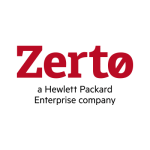Restarting the failed session, where you don’t need to run a whole selection list backup.
Newer DP versions even have a resume feature, which should allow you to continue from the point of failure, instead of ruining the whole partition in case of a “restart failed objects“ error.
There are lots of bugs around; inability to downgrade version, issues with version upgrades, etc. For example, Data Protector version 8 didn’t have a properly working restore feature; the next upgrade came within week. All kinds of small things required workarounds and support engagement to find some tweak within the config files.
When comparing other backup software, such as BackupExec for example which I have used at the same time as Data Protector. For BackupExec our backup team did raise one vendor case throughout four years, while for Data Protector, we had three to four vendor cases opened every month. That is just in general, as I really do not remember all the details for all those, I dont know, but hundreds of cases opened with HP Data Protector support. What I remember we didn‘t have a single patching/upgrade of Data Protector version without issues, which could only be solved by HP Data Protector vendor support. While for BackupExec it was always smooth and any issues we encountered we were able to solve them on our own.
I have been using it for 4+ years.
I have not encountered any deployment, stability or scalability issues.
Customer Service:
Customer service is great.
Technical Support:
Technical support is great.
We switched because of company policy, the tapes aged, etc.
Initial setup was straightforward.
I was within the support team, which did implement as well as support the solution.
Huge. Simply eliminating the need for tape changers returned the cost of the hardware within less than half a year.
Get an expert who knows the products, so you can get the best prices possible for both DP and StoreOnce. Because there are some things that can work for the same solution in different ways, hence they are differently licensed as well as priced.
Make sure architecture is planning properly, e.g., centralised or decentralised HPE DP Cell Managers give you some quite different options and etc.














Almost all the errors Data Protector throws out come with an error code within the session messages.
"[Major] From: BSM@server.com "Production Archive by Month 2" Time: 1/4/2018 1:30:14 AM
[61:4006] Could not connect to inet in order to start BMA@server.com "VLS-032"."
The numbers inside the brackets is your error code. Usually a quick search of the internet or on the Data Protector forum will get an answer for you (you can also click on that number and it will give you more details along with suggested troubleshooting). I agree with errors outside the realm of the backup, copy, restore jobs can be a pain to track down, however the "Omni" utilities in \bin are available and will usually lead you to what is wrong and where. Sometimes the solution is non-trivial though. In other cases, like any other software, something critical goes wrong and it leads to a very long engagement with support. I had 1 with the barcode reader on automated tape libraries in which things would just fail out without any explanation and it took a lot of debug logs for them to figure it out. Those errors are pretty rare though.
As far as quicker backups on 3PAR, Data Protector does integrate with 3PAR and can use snapshot functionality, as well as there being Zero Downtime style backups. The problem with these is that it is another add-on license which can get expensive. Since you have a 3PAR, it may be worth looking into Recovery Manager Central or other integrated HPE solutions.